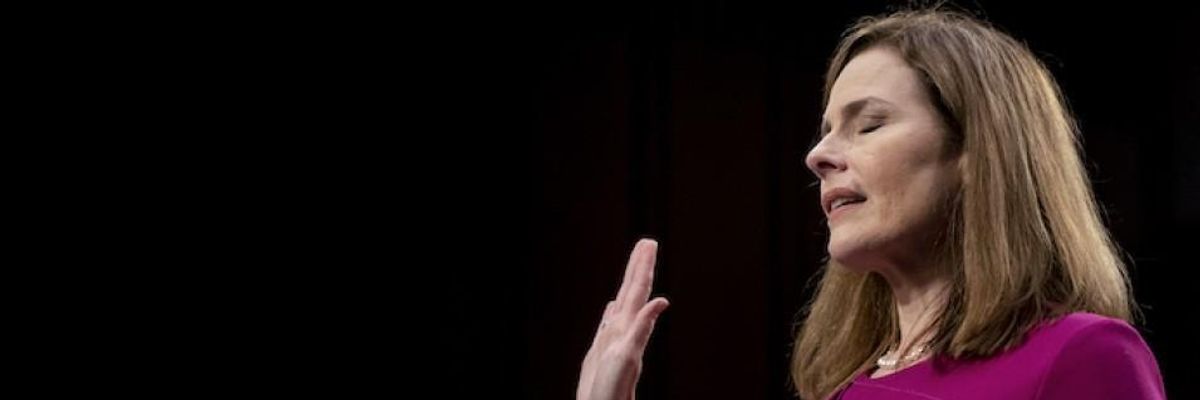In answers to follow-up questions from the Senate Judiciary Committee, President Donald Trump's Supreme Court nominee Amy Coney Barrett once again falsely characterized the science behind human-caused climate change as "controversial" and declined to acknowledge the established link between carbon emissions and global warming.
Barrett invoked (pdf) previous Supreme Court decisions describing the climate crisis as a "controversial subject" and a "sensitive political topic" to justify her persistent refusal to answer straightforward questions about the scientific consensus tying human activity to the warming planet, doubling down on the denialist position she staked out during her confirmation hearings last week.
"It would be inappropriate for me, as a sitting judge and as a judicial nominee, to opine further on any subject of political controversy," Barrett wrote, an answer she repeated several times with slight variations in response to the Judiciary Committee's follow-up questionnaire, which was made public late Tuesday.
"Because this question raises matters that could be the subject of litigation, it would not be appropriate for me as a sitting judge to opine further," Barrett replied when asked whether "power plants that burn coal emit pollutants into the air when operated."
Throughout the questionnaire, as The Daily Poster's David Sirota and Andrew Perez wrote late Tuesday, "Barrett again followed the standard script of climate denialists, repeatedly attempting to cast climate science as unsettled and a matter of controversy that she could not offer an opinion on."
In the wake of recent reporting by The Daily Poster, Barrett was also pressed on her ties to Shell Oil, where her father worked as an attorney for decades.
Pressed in writing by Sen. Sheldon Whitehouse (D-R.I.), Barrett acknowledged that her "father worked at Shell Oil Company for many years, and while on the Seventh Circuit, in an abundance of caution, I have recused myself from cases involving those Shell entities with which he was involved."
When Whitehouse asked whether she would be required to recuse herself from cases involving any other oil companies, Barrett dodged the question, writing: "The question of recusal is a threshold question of law that must be addressed in the context of the facts of each case."
